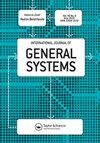Deriving efficacy from basic uncertain information and uncertain Choquet Integral
IF 2.9
4区 计算机科学
Q2 COMPUTER SCIENCE, THEORY & METHODS
引用次数: 6
Abstract
Basic Uncertain Information (BUI) as a newly introduced concept generalized a wide range of uncertain information. We discuss and compare some methods to derive efficacy from given BUI collection, which is helpful in decision aid. With BUI collection, we also discuss the technique of using Choquet Integral to aggregate those BUI and return closed intervals as final aggregation results, and the whole aggregation is then called Uncertain Choquet Integral. We also discuss Uncertain Choquet Integral with preference, which considers all the information about optimistic/pessimistic preferences of decision makers and in given fuzzy measure. Uncertain Choquet Integral with preference returns real value result instead of closed interval, and it is a type of generalization of Choquet Integral (when all value information are certain) which can be well used in uncertain information environments.从基本不确定信息和不确定Choquet积分推导功效
基本不确定信息(BUI)作为一个新引入的概念,广义化了一系列不确定信息。我们讨论并比较了从给定的BUI集合中获得疗效的一些方法,这有助于决策辅助。对于BUI集合,我们还讨论了使用Choquet积分来聚合这些BUI并返回闭合区间作为最终聚合结果的技术,然后将整个聚合称为不确定Choquet整数。我们还讨论了带有偏好的不确定Choquet积分,它考虑了决策者的乐观/悲观偏好的所有信息,并在给定的模糊测度中。具有偏好的不确定Choquet积分返回的是实值结果而不是闭区间,它是Choquet整数(当所有值信息都是确定的时)的一种推广,可以很好地应用于不确定信息环境。
本文章由计算机程序翻译,如有差异,请以英文原文为准。
求助全文
约1分钟内获得全文
求助全文
来源期刊

International Journal of General Systems
工程技术-计算机:理论方法
CiteScore
4.10
自引率
20.00%
发文量
38
审稿时长
6 months
期刊介绍:
International Journal of General Systems is a periodical devoted primarily to the publication of original research contributions to system science, basic as well as applied. However, relevant survey articles, invited book reviews, bibliographies, and letters to the editor are also published.
The principal aim of the journal is to promote original systems ideas (concepts, principles, methods, theoretical or experimental results, etc.) that are broadly applicable to various kinds of systems. The term “general system” in the name of the journal is intended to indicate this aim–the orientation to systems ideas that have a general applicability. Typical subject areas covered by the journal include: uncertainty and randomness; fuzziness and imprecision; information; complexity; inductive and deductive reasoning about systems; learning; systems analysis and design; and theoretical as well as experimental knowledge regarding various categories of systems. Submitted research must be well presented and must clearly state the contribution and novelty. Manuscripts dealing with particular kinds of systems which lack general applicability across a broad range of systems should be sent to journals specializing in the respective topics.
 求助内容:
求助内容: 应助结果提醒方式:
应助结果提醒方式:


